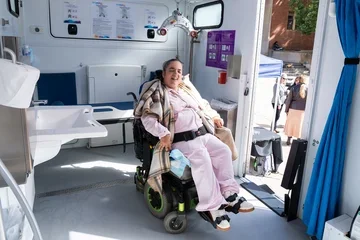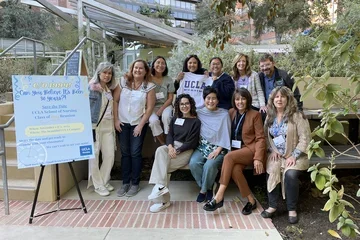School News - Fall 2020

Kia Skrine Jeffers, Ph.D., RN, PHN, Speaks at Book Launch
Dr. Kia Skrine Jeffers is a co-author of a new book “Racism: Science and Tools for the Public Health Professional” which discusses how experiencing racism affects an individual’s health and how public professionals can identify and address racism. Skrine Jeffers authored the chapter “Critical Race Theory’s Antiracism Approaches: Moving From the Ivory Tower to the Front Lines of Public Health.” The book is the first ever academic text to address racism entirely from a public health perspective and is on the American Public Health Association Press list of their bestselling books.
Judith Paice, Ph.D., RN, Featured Speaker at Inaugural Margot McCaffery Lectureship
Judith Paice, Ph.D., RN, Director of the Cancer Pain Program at Northwestern University Feinberg School of Medicine was the featured speaker at the inaugural Margot McCaffery Lectureship in Pain and Palliative Care. McCaffery was a faculty member at the School and a leader in pain management. When McCaffery passed away in 2018, Denise Economou, MS’ 93 and her husband established a lectureship at the School in her honor. Paice called McCaffery “a formidable nurse” and said it was important for her work to be remembered. Paice then presented “Unintended Consequences: Ensuring Access to Pain Control During an Opioid Epidemic.” She discussed the importance of opioid medications for pain management in patients with cancer and what strategies are needed to maintain patient safety while minimizing the risk of opioid misuse. (Pictured L-R: Denice Economou of City of Hope, UCLA SON Dean Linda Sarna, and Judith Paice of Northwestern Medicine)
John Lowe, RN, Ph.D., FAAN – Dean’s Distinguished Lecture
The 2020 Dean’s Distinguished Lecture was presented by John Lowe, RN, Ph.D., FAAN, Professor and Endowed Chair for Health Disparity Research and Director for the Center of Indigenous Nursing Research for Health Equity, College of Nursing, Florida State University. During his talk on ‘The Impact of Colonization on Health Disparities Among Native Americans,’ he discussed that It is critical
to approach Indigenous health through a framework of historical trauma and
to understand the history of genocide that is the foundation for current health disparities. He also shared that “our communities trust nurses, so it is important for nurses to do the research”. Currently there are only 23 Native American nurses who hold Ph.Ds.



